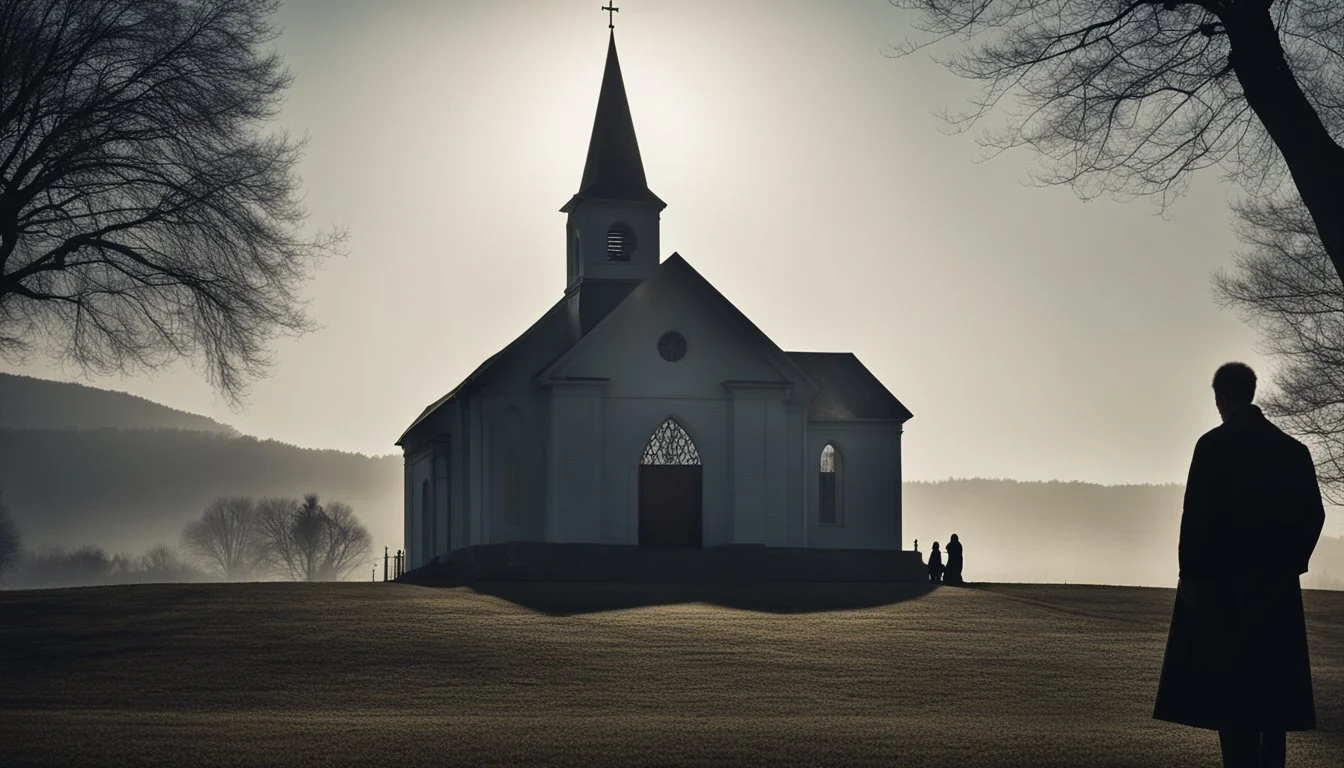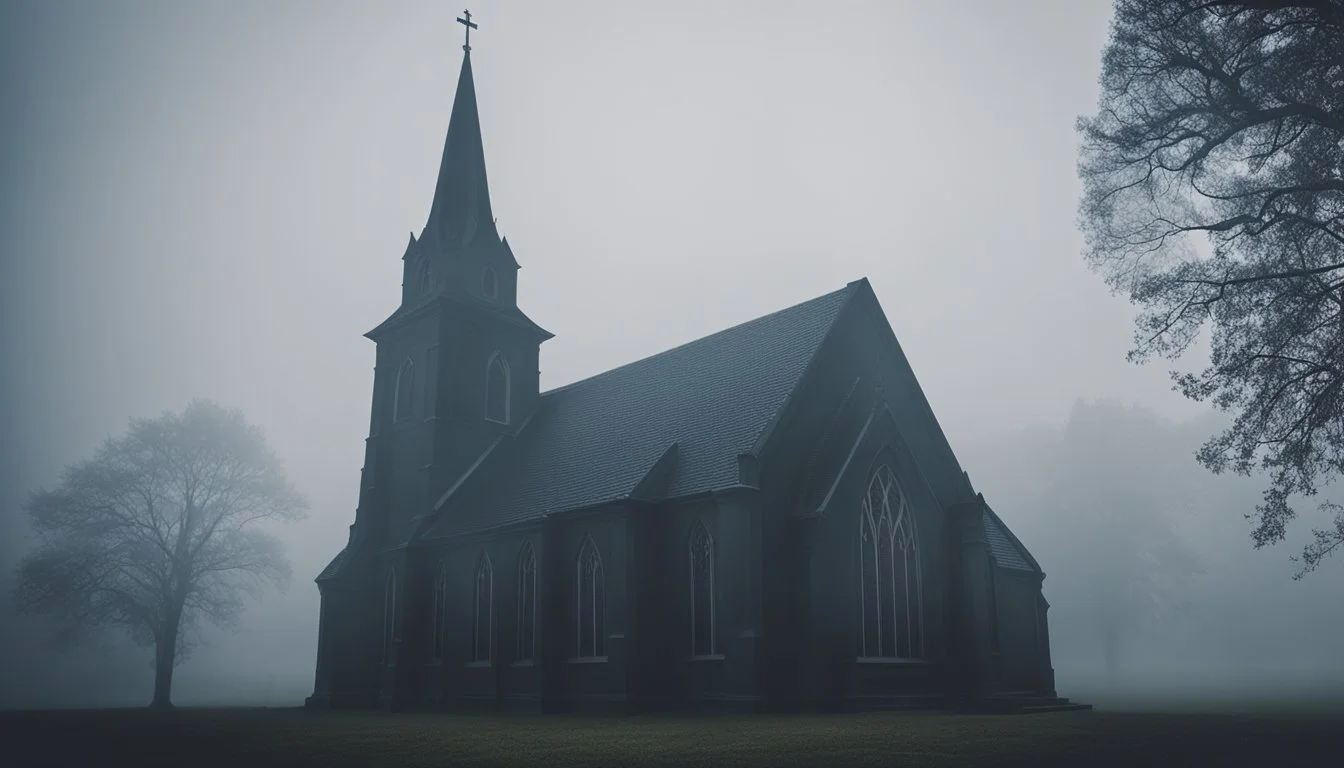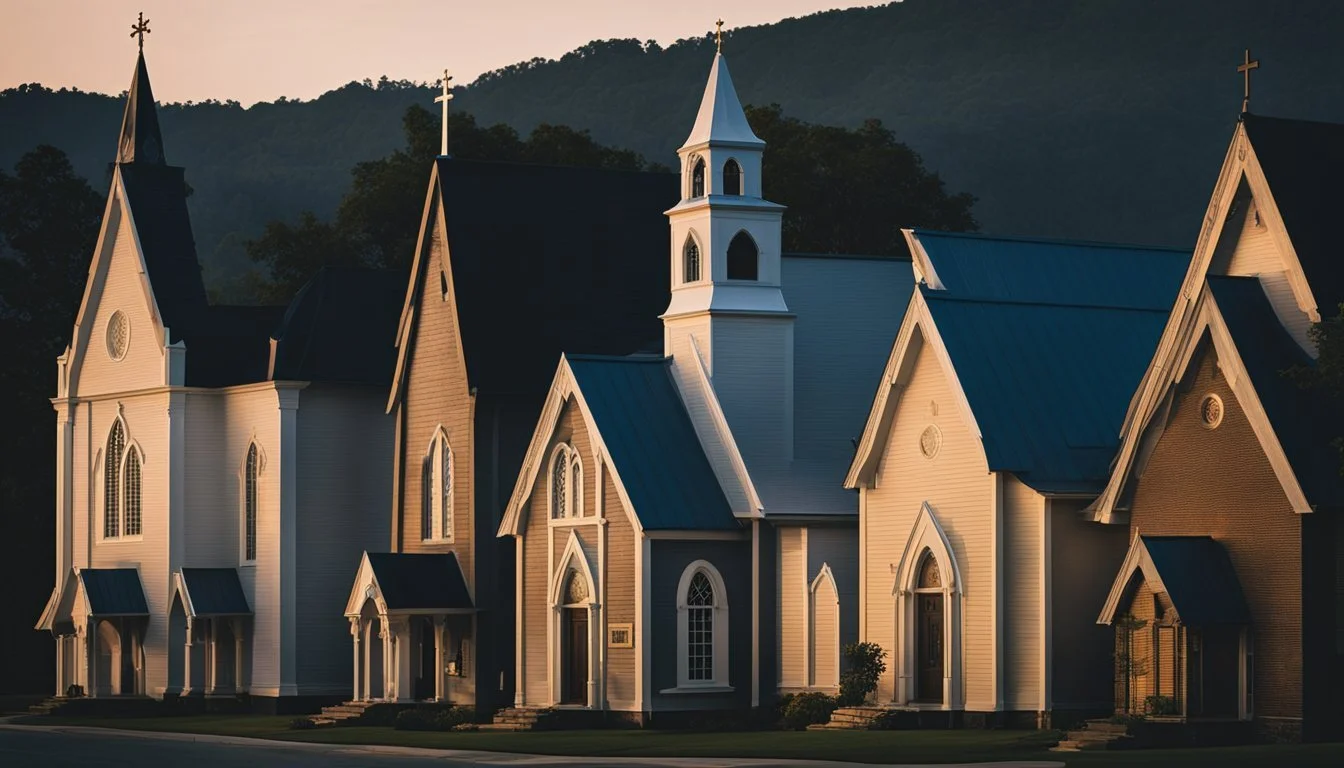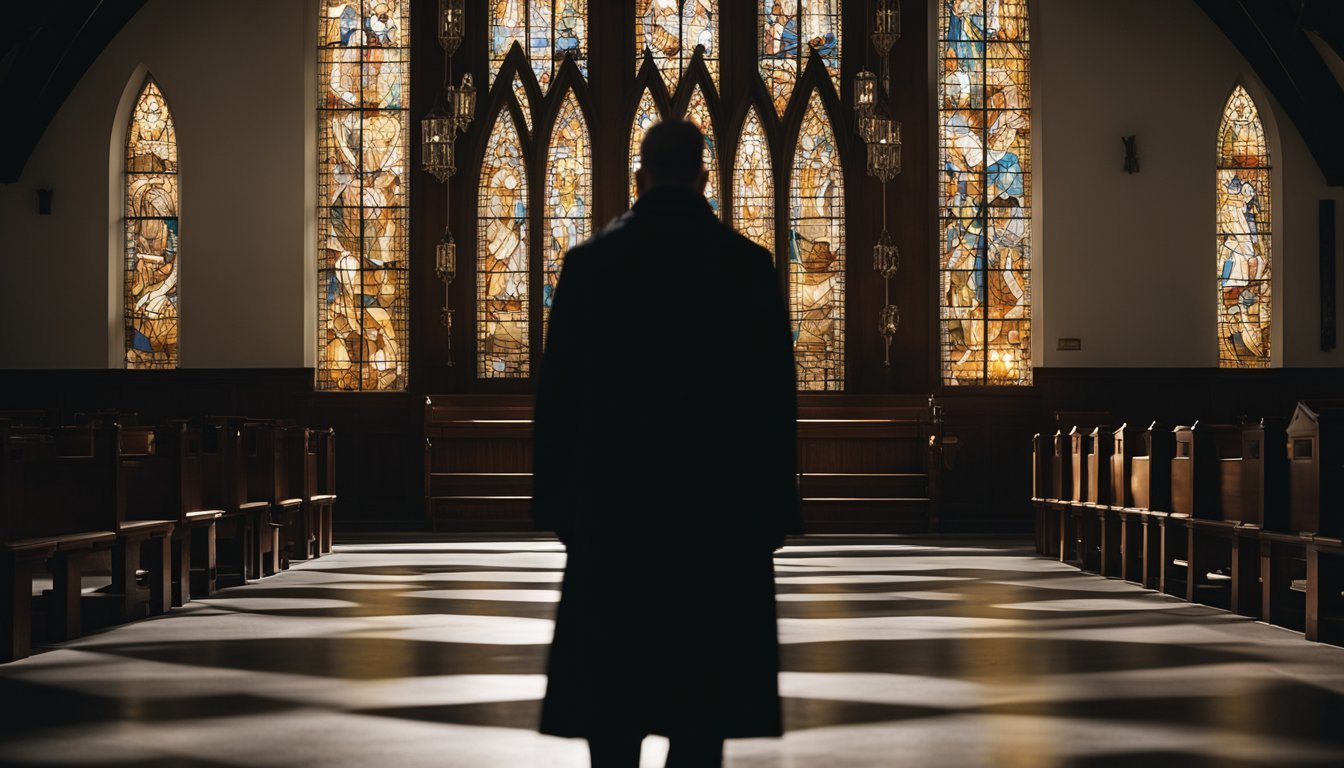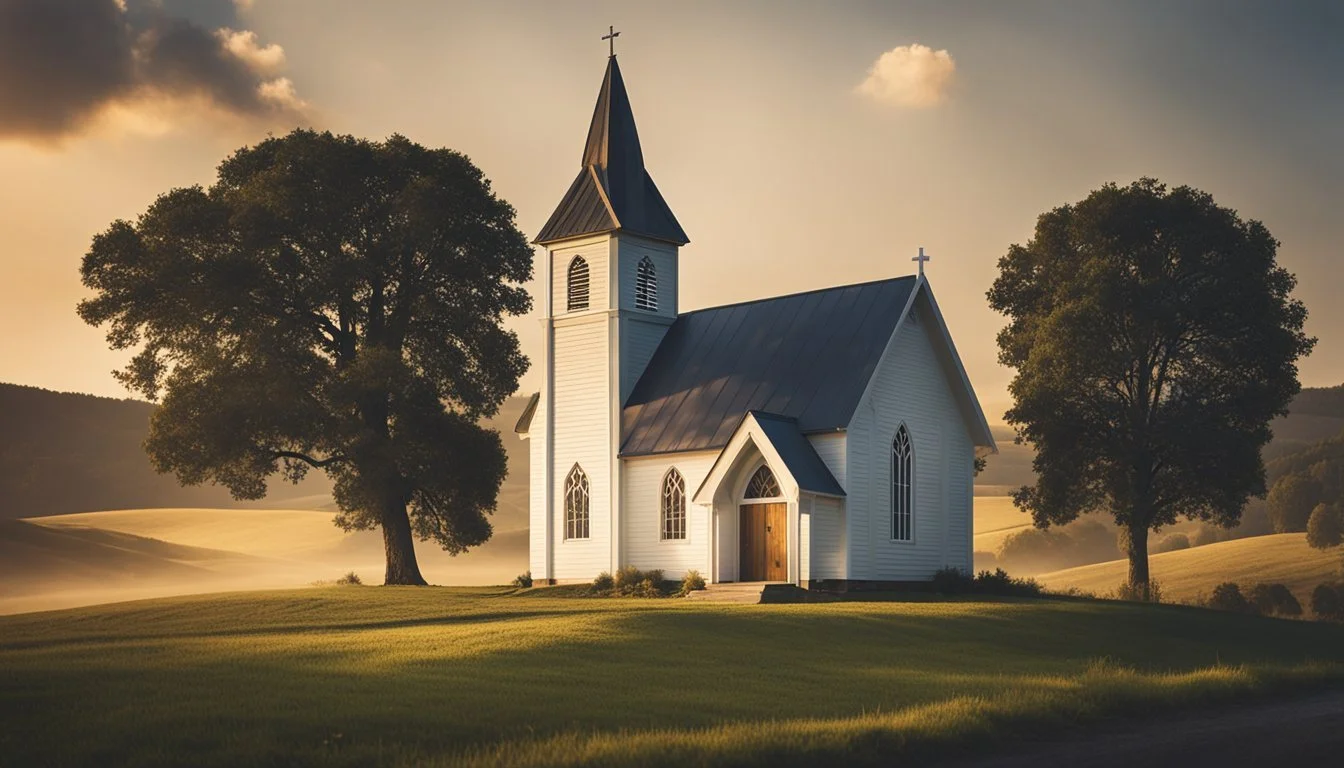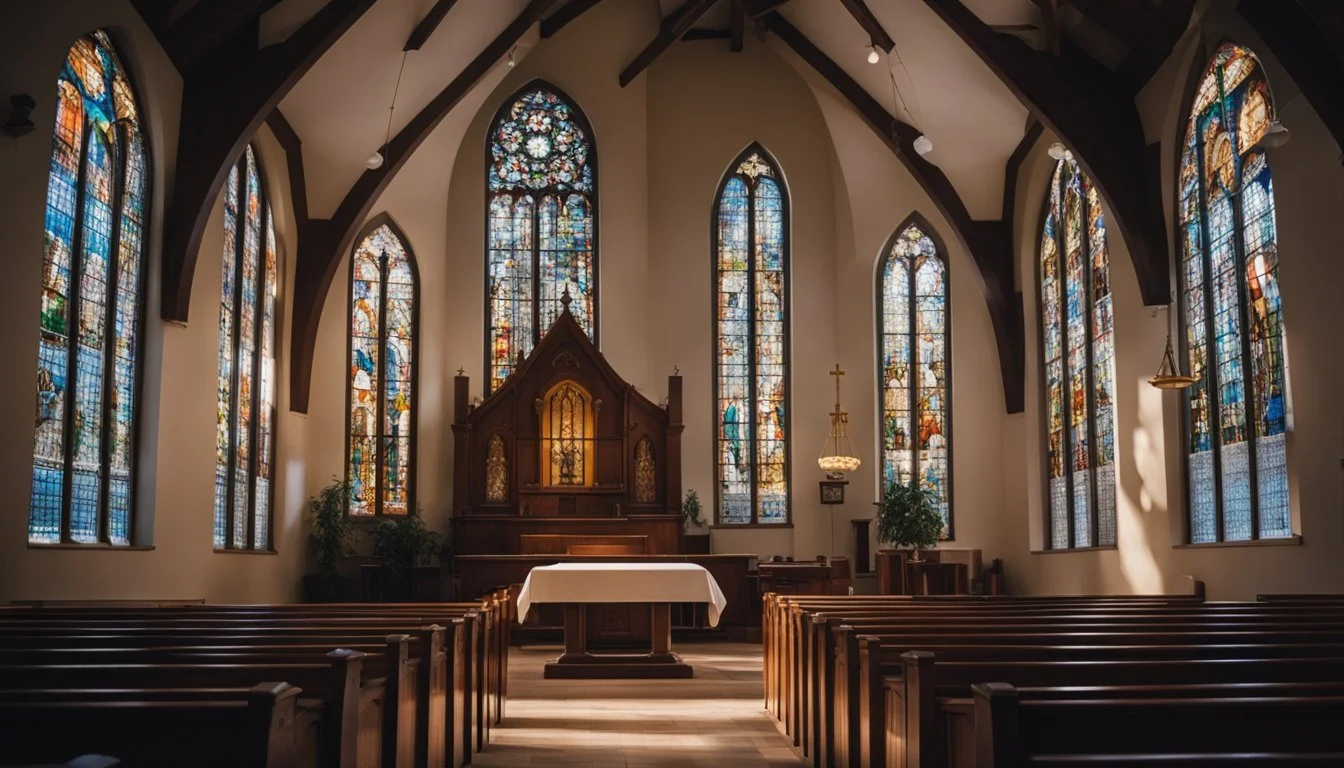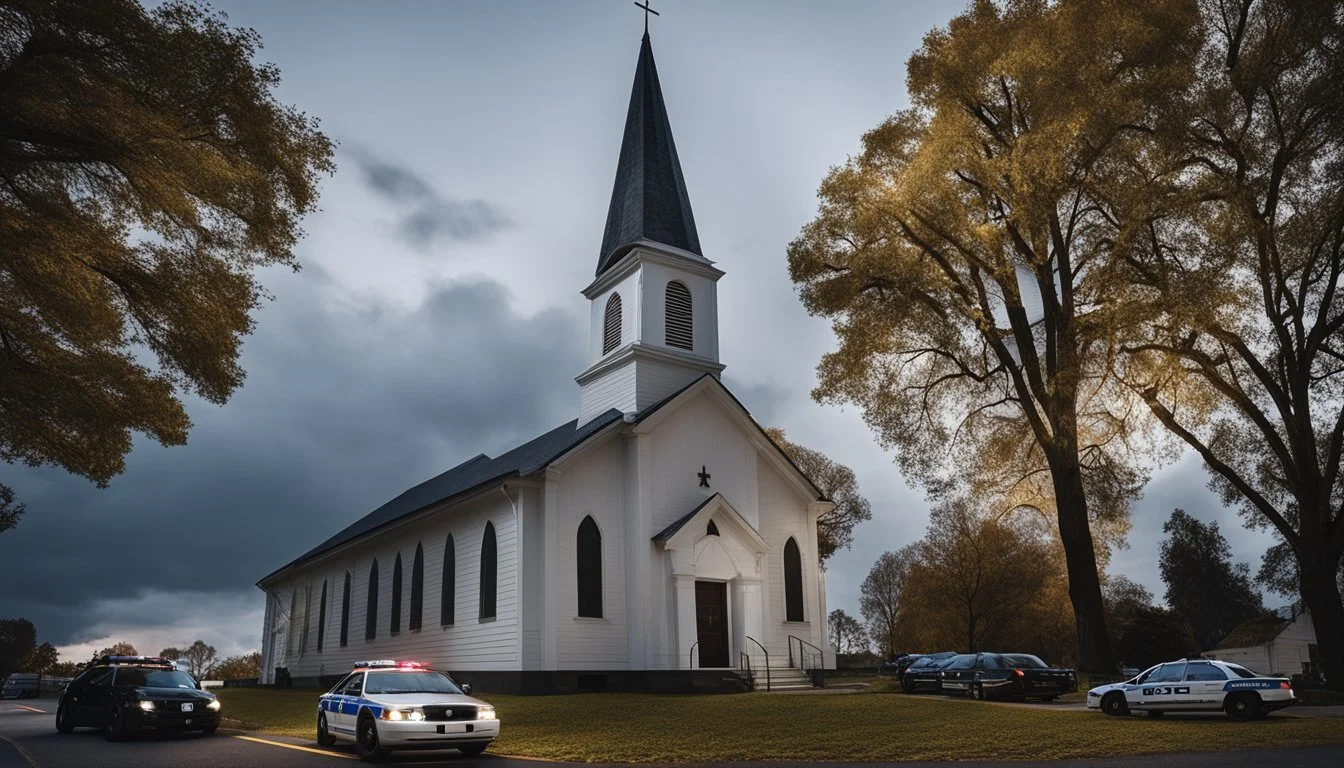7 True Crime Documentaries About Methodist Churches You Must See
True crime documentaries have gained immense popularity, captivating audiences with their in-depth explorations of real-life crimes and the individuals and institutions involved. This article delves into seven intriguing true crime documentaries centered around Methodist churches, revealing stories where faith and crime intersect in unexpected ways. Such documentaries not only satisfy viewers' curiosity about the criminal undertones within religious settings but also highlight the complexities and vulnerabilities within these communities.
Methodist churches, like other religious institutions, are not immune to the darker aspects of human behavior. Through these documentaries, audiences can gain insight into the intricate dynamics that allow such crimes to occur within communities often perceived as safe havens. The stories featured in these documentaries reflect a range of issues, from financial misconduct to more harrowing crimes, offering a glimpse into the numerous challenges Methodist congregations may face.
1) Abducted In Plain Sight (2017)
"Abducted In Plain Sight" is a true crime documentary directed by Skye Borgman.
The film recounts the harrowing story of Jan Broberg, a young girl from a devout Methodist family in Idaho. She was kidnapped twice by a trusted neighbor, Robert Berchtold, in the 1970s. This neighbor manipulated not only Jan but also her entire family through a complex web of deceit and psychological control.
The documentary provides an in-depth look into how Berchtold exploited the Broberg family's religious faith and trust. The Brobergs, who were active in their local Methodist church, struggled to see through Berchtold's manipulative actions, making the abductions even more shocking.
Through interviews with Jan Broberg and her family, the film reveals the extent of Berchtold's manipulation and the impact of these events on their lives. The combination of personal testimonies and archival footage offers a chilling glimpse into the vulnerability of trust within a close-knit religious community.
Further details about the film can be found on its Wikipedia page.
2) Holy Hell (2016)
Directed by Will Allen, Holy Hell offers an in-depth look at the Buddhafield cult, where Allen himself was a member and videographer for over two decades.
The film showcases original footage captured by Allen, providing a unique, firsthand perspective of life within the cult. This raw documentation includes intimate moments and rare glimpses into the inner workings of the organization.
The enigmatic leader, Michel, presents himself as a spiritual guide but is eventually revealed to be manipulative and controlling. Through new interviews with former members, the documentary paints a vivid picture of the psychological manipulation and pressure experienced by cult members.
Allen's personal journey adds an emotional layer to the film, highlighting the challenges of breaking free from a cult's influence. The documentary is both gripping and informative, offering a rare inside look at the complexities of cult dynamics.
For those interested in exploring the world of cults and the psychological aspects of control and influence, Holy Hell is a must-watch. More information
3) The Keepers (2017)
"The Keepers" is a seven-episode documentary series that explores the unsolved murder of nun Catherine Cesnik in 1969. It's a gripping investigation into the dark secrets surrounding her death and its aftermath.
Sister Cathy Cesnik's murder is linked to allegations of sexual abuse at Archbishop Keough High School in Baltimore. Her former students believe that there was a cover-up involving local authorities and the Catholic Church.
The series delves into the stories of those affected by these events. It pieces together testimonies and evidence while navigating the broader implications of abuse within religious institutions.
Released on Netflix, "The Keepers" has received praise for its meticulous research and powerful storytelling. Through the diligent work of amateur investigators, the series sheds light on a case that has haunted many for decades.
For more detailed information, visit IMDb: The Keepers (2017).
4) Cold Justice: A Touch of Evil
"Cold Justice: A Touch of Evil" is a gripping true crime documentary that delves into the complexities of cold case investigations. The series follows former prosecutor Kelly Siegler and her team as they tackle unsolved homicide cases from across the United States.
In one notable episode, the team investigates the 2007 murder of a World War II veteran in Lake Station, Indiana. The victim was brutally killed with a sledgehammer, and the team helps local law enforcement by tracing stolen credit card purchases.
The show combines real-life courtroom drama with meticulous detective work. Kelly Siegler and her rotating team of seasoned detectives, including Steve Spingola and Yolanda McClary, bring their expertise to each case. This makes the series both informative and engaging.
By working with local law enforcement, "Cold Justice" not only aims to solve these cases but also seeks to bring closure to the victims' families. This collaboration often brings new life into stalled investigations.
For more information, visit IMDb (2013-present).
5) Murder Among The Mormons (2021)
"Murder Among the Mormons" is a gripping American true crime documentary series that delves into the notorious crimes of Mark Hofmann.
Hofmann was a highly skilled forger who produced fake documents related to the Latter Day Saint movement. His forgeries deceived many, leading to significant turmoil within the church.
The series, directed by Jared Hess and Tyler Measom, reveals how Hofmann's actions escalated to deadly consequences. The story is notable for its high-stakes deception and the resulting upheaval in the global church community.
The documentary consists of three episodes and premiered on Netflix in March 2021. It provides a detailed examination of Hofmann's forgeries and the impact of his crimes.
For more information, visit Murder Among the Mormons on IMDb.
6) The Family I Had (2017)
"The Family I Had" is a true crime documentary that delves into a tragic event within the Bennett family.
The film explores the circumstances surrounding the murder of four-year-old Ella Bennett by her 13-year-old brother, Paris Bennett. The incident, which occurred in 2007, left their mother grappling with unimaginable grief and questions.
Directed by Katie Green and Carlye Rubin, the documentary examines the complexities of the juvenile justice system and its impact on families.
The film also highlights issues of mental illness, intra-family violence, and the devastating effects on those left behind.
It provides viewers with a raw and intimate look into a family's attempt to cope and find meaning in the aftermath of senseless violence.
Further details on "The Family I Had" can be found here.
7) Killer In Our Church (2018)
"Killer In Our Church" delves into a harrowing true crime story that shocked a tight-knit Methodist congregation. The film uncovers the tragic murder of a beloved church member at the hands of their pastor. The documentary weaves through the series of events leading up to the unsettling crime and its aftermath.
Through interviews with congregation members, law enforcement, and experts, the film reveals how the community grappled with the betrayal and the psychological toll it took on those involved.
The filmmakers provide a detailed examination of the pastor's background, shedding light on aspects of his life that may have led to the crime. The narrative is both compelling and thought-provoking, encouraging viewers to reflect on trust, faith, and justice.
For more information, visit IMDB.
Historical Context and Background
The history of Methodist Churches provides insight into their origins and evolution, highlighting the key changes in beliefs and practices over time.
Origins of Methodist Churches
Methodism began in the 18th century, primarily as a revitalization movement within the Church of England. Founded by John Wesley and his brother Charles, its goal was to reform the church and address social justice issues. The Wesley brothers emphasized personal piety and a strong sense of community, which set the stage for Methodism's spread.
John Wesley's practice of field preaching attracted large crowds, emphasizing salvation through faith and the importance of personal spirituality. The Methodist movement rapidly expanded, especially among the working class, leading to the formation of Methodist societies and lay preachers. By the late 18th century, Methodism had established a distinct identity, influencing religious life across Britain and its colonies.
Evolution of Beliefs and Practices
Over the centuries, Methodism's beliefs and practices have adapted to changing social and cultural contexts. Initially focused on personal holiness and societal reform, Methodists have historically engaged in various social justice efforts, including abolitionism and temperance.
Worship in Methodist churches often includes hymn singing, inspired by the numerous hymns written by Charles Wesley. The Methodist liturgy has evolved to include a diverse range of practices, from traditional services to contemporary worship styles.
Theological education remains a cornerstone, with an emphasis on scripture, tradition, reason, and experience. Today, Methodism continues to evolve, blending historical traditions with modern expressions of faith to address contemporary issues. This dynamic adaptability helps maintain its relevance in a rapidly changing world.
Prominent Cases and Investigations
There have been several high-profile true crime cases involving Methodist churches that have garnered significant attention due to their complexity and impact on the community.
Case Study Analysis
High-profile cases involving Methodist churches often reveal a complex web of circumstances. One notable case is the murder of Reverend Carol Daniels. In 2009, Reverend Daniels was found brutally murdered inside the Christ Holy Sanctified Church in Anadarko, Oklahoma. The crime scene was staged to send a message, adding layers of mystery and horror to the investigation. Though extensive efforts were made by local law enforcement, the case has remained unsolved, highlighting challenges in forensic evidence and witness cooperation.
Another significant investigation was the embezzlement case at First United Methodist Church in Louisville. In 2012, the church treasurer was discovered to have embezzled over $600,000 over a period of six years. The scandal rocked the community and led to significant changes in church financial oversight and management practices. Authorities were able to trace the funds, leading to the treasurer's prosecution and imprisonment.
Impact on the Community
The impact of these cases on the community is profound. Reverend Daniels' unsolved murder fostered fear and distrust among churchgoers and residents. The case highlighted issues of safety and the need for better security measures in places of worship. The community's call for justice remained strong, with memorials and vigils held annually to keep the case in the public eye.
In the embezzlement case at the First United Methodist Church, the betrayal by a trusted official led to a crisis of confidence within the congregation. It prompted the church to reassess and tighten its financial controls. The incident also raised awareness about the need for transparency and accountability in church operations. The broader community responded with a mix of support and scrutiny, emphasizing the importance of trust in religious institutions.
Cultural and Societal Implications
True crime documentaries about Methodist churches impact both the perception of these religious institutions and their representation in media.
Perception of Methodist Churches
True crime documentaries focusing on events within Methodist churches can deeply influence how these religious institutions are viewed. Audiences often associate churches with moral guidance and community support.
Incidents of crime within these settings challenge these perceptions. The documentaries may highlight issues like fraud, abuse, or other criminal activities. This can lead to distrust and skepticism towards Methodist churches.
However, the role of the church in community recovery and support in the aftermath of such events is significant. Promoting transparency and accountability within the church can help in restoring faith among congregants.
Media Representation
Media representation of crime within Methodist churches also has a considerable impact. Documentaries often dramatize events, which can affect public opinion. They may focus on shocking details to captivate viewers, sometimes at the cost of nuanced storytelling.
The portrayal of individuals involved can also shape viewers' understanding of Methodist doctrines and practices. Sensationalized media can overshadow positive contributions of these churches in their communities.
Balanced representation, contrasting the incidents with ongoing community and charity work by the church, is critical. It ensures a holistic understanding of Methodist churches beyond the isolated criminal events documented.


